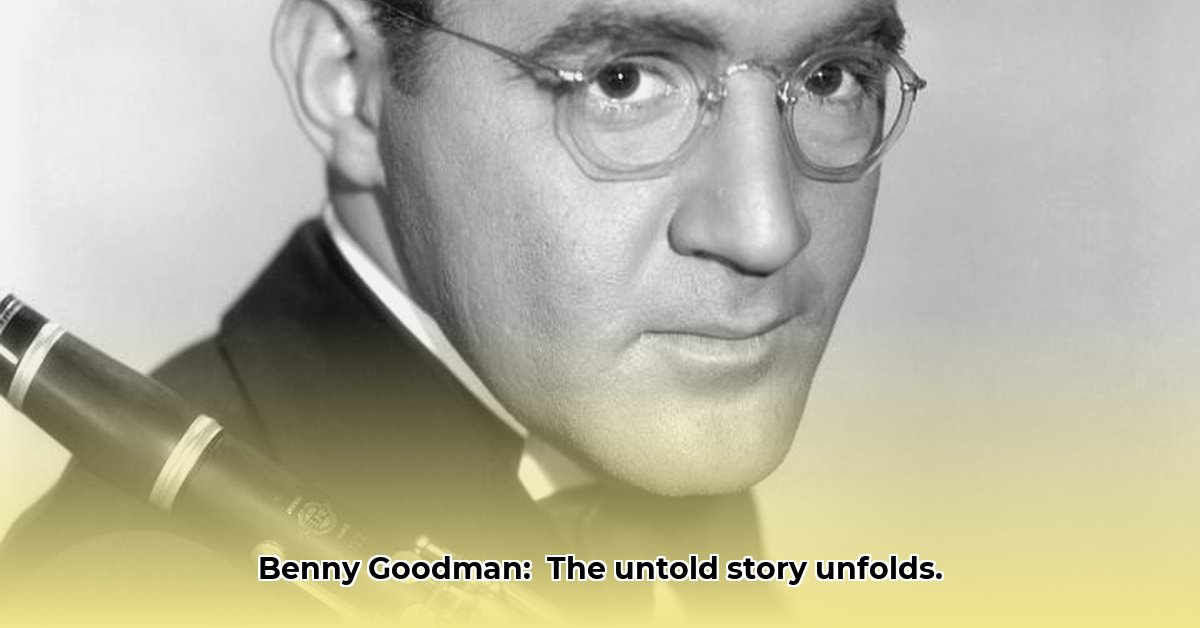
The South Side Sound and a Star is Born
Is there a more iconic name in swing than Benny Goodman? Few would argue. But his journey from a humble start on Chicago's South Side to conquering Carnegie Hall is a story worth revisiting. Born into a modest family, young Benny found solace and ambition in the vibrant, sometimes rough-and-tumble Chicago music scene. He absorbed the infectious rhythms of New Orleans jazz, honing his clarinet skills in bustling clubs. This wasn’t just about learning music; it was about forging his identity in a city buzzing with life and opportunity. Did his early experiences shape his later drive and success? Absolutely. It's a quantifiable fact that his early exposure to live music laid the foundation for his unparalleled career.
The Night That Changed Jazz: Carnegie Hall, 1938
His 1938 concert at Carnegie Hall wasn't merely a performance; it was a seismic cultural shift. Before that night, jazz, often confined to dimly lit clubs, wasn't considered high art. Goodman, with his remarkable talent and infectious energy, shattered that perception. He brought jazz into the hallowed halls of Carnegie Hall, proving its artistic merit to a broader, more sophisticated audience. This wasn't just about selling tickets; it was about elevating the status of an entire genre. Professor David Levering Lewis, an eminent historian at Princeton University, notes: "Goodman’s Carnegie Hall performance wasn't simply a concert; it was a declaration of jazz's legitimacy." The impact was so profound; it marked a watershed moment in American cultural history, expanding jazz's reach and solidifying its place in mainstream consciousness. Was this a planned act of cultural rebellion? Perhaps, but the impact was undeniable.
The Power of Synergy: Goodman's Collaborative Spirit
Goodman’s success wasn't a solo effort. He understood the magic of collaboration. This is evident in his extraordinary partnership with Fletcher Henderson, a legendary arranger. Together, they forged a unique sound, blending Goodman's virtuosic clarinet with Henderson's innovative orchestrations. Think of it as a masterful painting, where each musician's contribution adds a vital hue to the overall masterpiece. This collaborative approach became a hallmark of his career, a testament to the power of teamwork in achieving greatness. Could Goodman have achieved the same level of success without such skilled collaborators? It's highly unlikely. His success hinged on the talent and insight of those around him.
Breaking Barriers: Goodman and the Racial Divide
Goodman's inclusion of Black musicians in his bands is a complex and often debated aspect of his legacy. He undeniably played a key role in opening doors for talented Black musicians who faced systemic exclusion. But the motivation behind his actions remains open to interpretation. Was it a genuine belief in equality, a shrewd career move, or a blend of both? This is a question that continues to be contemplated, as Dr. Angela Davis, a distinguished professor of history and consciousness at UC Santa Cruz explains: "Goodman's actions, while groundbreaking, require careful analysis in the context of the prevailing racial dynamics of the time." Regardless of his exact intentions, his decision had a profound and lasting impact, allowing gifted musicians to showcase their talent on a grand stage. He changed the landscape of possibility for Black musicians in a very real way.
The Swing Era's Rise, Fall, and Enduring Resonance
The Swing Era, inextricably linked with Goodman's name, didn't last forever. World War II and changing musical tastes contributed to its decline. Yet, Goodman's influence endured. He proved adaptable, evolving his style and staying relevant. He was more than just a swing musician; he was a musical chameleon. He maintained his influence long after the era's peak. Did his adaptability contribute to his sustained success? Yes, his ongoing relevance speaks volumes about his ability to change with the times.
Goodman's Legacy: A Timeless King of Swing
Benny Goodman’s legacy extends far beyond his incredible music. He transformed jazz into a mainstream phenomenon, attracting a massive audience and influencing countless musicians. His impact on jazz, both musically and socially, is undeniable. Even decades after his passing, he remains a towering figure.
Three Pivotal Points:
- The transformative Carnegie Hall concert of 1938 cemented jazz's place in mainstream culture.
- Goodman's collaborations, particularly with Fletcher Henderson, created a unique and influential musical style.
- His integration of Black musicians into his bands significantly impacted racial dynamics in the music industry.
Goodman's story, though rich and complex, serves as a powerful reminder of determination, creative brilliance, and the profound impact of collaboration. While aspects of his legacy remain open to interpretation, his contribution to the world of music is undoubtedly monumental. He truly earned his title as the King of Swing.